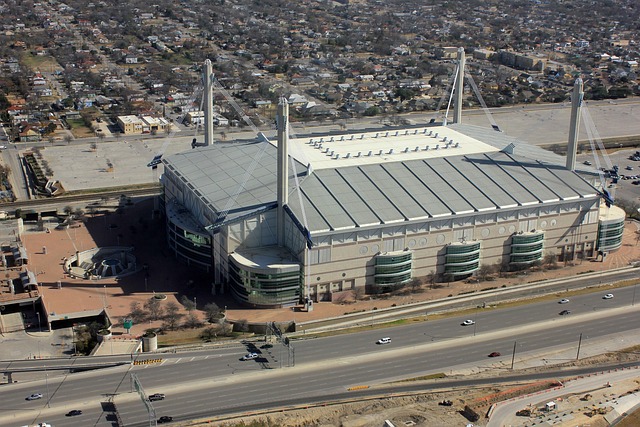AI-driven automated calling systems, though powerful tools for marketing and customer service, present complex legal challenges in San Antonio, particularly regarding consumer privacy and the Telephone Consumer Protection Act (TCPA). Businesses must navigate state-specific regulations, obtain explicit consent, provide opt-out options, and maintain accurate call records to avoid fines and protect consumer rights. Engaging an autodialer lawyer in San Antonio is crucial for ensuring compliance with these stringent laws and safeguarding business reputation. Best practices include transparent disclosure of AI technology use and regular audits of calling scripts.
In the age of technological advancement, Artificial Intelligence (AI)-driven automated calling systems have become a common practice for local businesses in San Antonio and across the US. While these systems offer efficient marketing strategies, they also raise legal concerns regarding privacy and consumer protection. This article explores the legal implications of using AI-powered autodialers, shedding light on the current regulatory framework, potential compliance issues, and best practices to help local firms navigate this complex landscape while mitigating legal risks.
Understanding AI-Driven Automated Calling Systems
AI-driven automated calling systems have transformed how businesses reach out to potential clients and customers. These technologies utilize machine learning algorithms and natural language processing to dial numbers, deliver pre-recorded messages, and even engage in two-way conversations. An autodialer Lawyer San Antonio can help navigate the legal complexities surrounding these systems. Key considerations include compliance with telecommunications laws, consumer privacy regulations like the Telephone Consumer Protection Act (TCPA), and data security measures to protect sensitive information exchanged during calls.
The use of AI introduces unique challenges and opportunities for legal professionals and businesses alike. While automated calling systems can significantly enhance marketing efforts and customer service, they must be implemented carefully to avoid legal pitfalls. Understanding the capabilities and limitations of AI in this context is crucial for ensuring compliance and mitigating potential risks, including unwanted calls, data breaches, and regulatory fines.
Legal Framework Surrounding Autodialers in the US
In the United States, the legal framework surrounding automated calling systems, often referred to as autodialers, is primarily governed by federal and state telecommunications laws. The Telephone Consumer Protection Act (TCPA) is a landmark piece of legislation that aims to protect consumers from certain practices in telemarketing and automatic telephone dialing systems. This law prohibits businesses from using autodialers to make robocalls without prior explicit consent from the recipient, ensuring a user’s privacy and peace of mind.
San Antonio, like many cities across the nation, has seen a rise in local firms adopting AI-driven technologies for automated calling. While these technologies offer numerous benefits, they also bring complexities regarding compliance with the TCPA and related state laws. Engaging the services of an experienced autodialer lawyer San Antonio is becoming increasingly important as businesses strive to navigate this evolving legal landscape, ensuring their practices are in line with the stringent regulations designed to safeguard consumer rights.
Compliance Issues and Potential Liabilities for Local Firms
Local firms utilizing AI-driven automated calling systems, also known as autodialers, must navigate a complex web of legal implications and compliance issues. While these technologies offer significant advantages in terms of efficiency and cost-effectiveness, they can also give rise to potential liabilities. One of the primary concerns revolves around consumer privacy and protection laws, such as the Telephone Consumer Protection Act (TCPA) in the United States. Improper use of autodialers may result in hefty fines and damage to the company’s reputation.
Compliance issues extend to other areas, including obtaining explicit consent for automated calls, providing clear opt-out mechanisms, and ensuring accurate call records. Moreover, local firms must be mindful of state-specific regulations, as laws regarding telemarketing and automated calling practices can vary widely across different jurisdictions. Engaging the services of an experienced autodialer Lawyer San Antonio can help businesses navigate these complexities, mitigate risks, and ensure compliance with relevant legal frameworks.
Best Practices for Implementing AI Call Technologies While Avoiding Legal Pitfalls
Implementing AI-driven automated calling systems can offer significant advantages for local firms, but it’s crucial to navigate legal implications carefully. To avoid potential pitfalls, San Antonio businesses should adopt best practices such as ensuring compliance with telephone consumer protection laws (TCPA). This includes obtaining explicit consent from callers before initiating automated dialer campaigns and maintaining detailed records of opt-out requests.
Another key practice is transparency. Users should clearly disclose the use of AI technologies in their communication with potential clients. This can foster trust and reduce the risk of misrepresentations. Regular audits and updates to calling scripts are essential to address evolving legal standards and ensure ongoing compliance, especially when using an autodialer lawyer San Antonio firms might engage.






